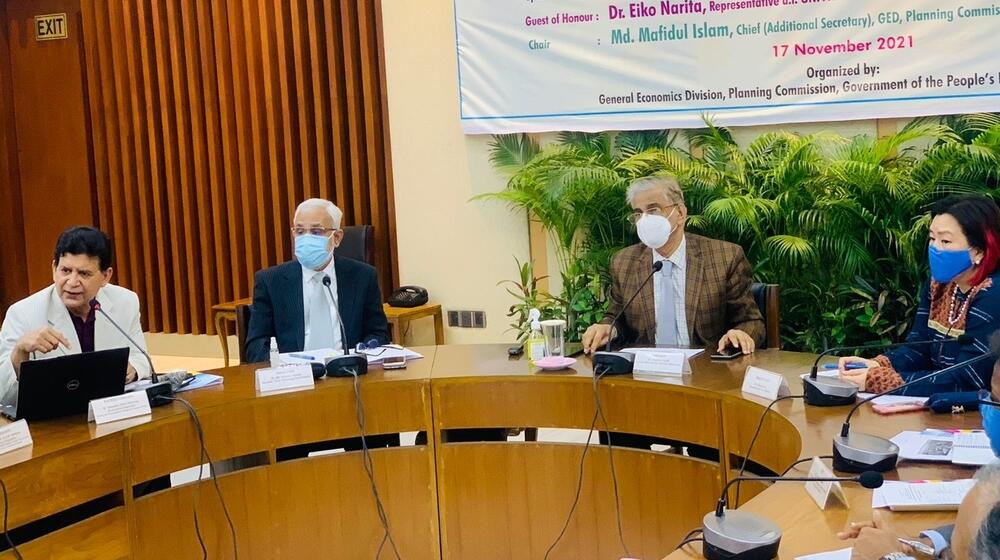As more and more people in Bangladesh continue to migrate into urban areas, it is increasingly important that the flow of people into the cities is managed in a sustainable manner. To discuss how this can be accomplished, UNFPA and the General Economics Division (GED) of the Government of Bangladesh organized a policy dialogue on ‘Urban Sustainability through Good Population Density Approach’ on November 17. UNFPA Representative a.i., Dr. Eiko Narita, participated in tthe panel alongside the Honourable State Minister of Planning, Dr. Shamsul Alam; the Chief of the Planning Commission of GED, Md. Mafidul Islam; and Member of the Planning Commission of GED, Dr. Md. Kawser Ahmed. Furthermore, the Executive Chairman of Public Policy Research Centre (PPRC), Dr Zillur Rahman delivered the key-note presentation on examples of good population density practices from around the world at the event. “Dhaka and Chittagong contribute 50% to our total GDP, which shows why urbanization is a symbol of progress. Through vertical expansion and following good density criteria, the issue of density can be handled in a sustainable manner,” the Hon’ble State Minister, Dr. Shamsul Alam stated in his remarks at the event. In her remarks, Dr. Eiko Narita highlighted the particular challenges that urbanization has brought and will continue to bring to the country's women: “The international style of architecture, which formed the functions around urbanization, was mainly defined by men. As cities in Bangladesh continue to grow, we must carefully consider the gender dimensions of urbanization.” She also highlighted the need for Bangladesh's urban centers to adapt to the risks posed by climate change and the importance of increased investments in public services in urban areas. The panellists also highlighted the need to generate new data on urban geography to improve urban planning. Moreover, efforts to reduce urban waste and pollution, improving public transportation and expanding social services and employment opportunities were discussed.
What we do
UNFPA advocates for enhanced urban sustainability through good population density practices
News
UNFPA advocates for enhanced urban sustainability through good population density practices
18 November 2021


